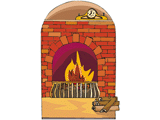HATS!!! Welcome, welcome~! That's all you need! So good to see you again! We were posting together on the Nefertiti book. It sounds wonderful, I have not heard of it. This time we are only reading works by the ancient authors themselves (in translation), but I think I'll look up the Nefertiti because I also have heard of it, and I got a gift certificate for B&N for Christmas!
What wonderful conversations here and ideas! I spent all yesterday thinking about Sally's Agamemnon. I can't get over how surprised he was and aggrieved at his homecoming...one wonders what he expected. Then I looked him up to see if any plays were extant and found one by an English author and it's quite short and very readable. We might do worse in our readings to include something modern or Shakespeare, anyway, depending on the subject, a different take, as it were, when we read the original.
Iphigenia. Such great ideas here.
PatH another real consideration and decision to make. Some of our nominations will take us a long time, months perhaps, and some might take an afternoon. What do you all think? Should we get our feet wet with a short one (the background and allusions alone might make any of them long) so we can have that under our belt (can I mix any more metaphors here? hahaha) or should we go for broke and bet a big one totally complete?.
Which of the huge list of plays do we want to add to the heading now? We could do Euripides's Iphigenia and Aeschylus's Agamemnon as Gum mentions (IF still in print, I'm sure they are), and compare them. Sometimes they take completely different paths, too, on the same subjects.
Babi, very impressive volume, I envy you!
